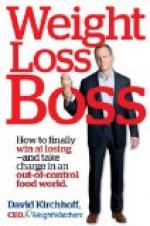Beneath the coronet of stars on the Heights of Abraham the spirit of Wolfe kept watch and brooded. It was under these circumstances, that I heard the phrase for the first time—the last war.
The street was blocked with a gaping crowd. All the faces were raised to an open window, two storeys up, from which the frame had been taken out. Inside the building one could hear the pounding of machinery, for it was here that the most important paper of Quebec was printed. Across a huge white sheet a man on a hanging platform painted the latest European cables. A cluster of electric lights illuminated him strongly; but he was not the centre of the crowd’s attention. In the window stood another man. Like myself he was waiting for his ship to sail, but not to England—to France. He was a returning French reservist. Across the many miles of ocean the hand of duty had stretched and touched him; he was ecstatically glad that he was wanted. In those first days this ecstasy of gladness was a little hard to understand. Thank God we all share it instinctively now. He was speaking excitedly, addressing the crowd. They cheered him; they were in a mood to cheer anybody. His face was thin with earnestness; he was a spirit-man. He waved aside their applause with impatience. He was trying to inspire them with his own intensity. In the intervals between the shouting, I caught some of his words, “I am setting out to fight the last war—the war of humanity which will bring universal peace and friendship to the world.”
A sailor behind me spat. He was drunk and feeling the need of sympathy. He began to explain to me the reason. He was a fireman on one of the steamers in the basin and a reservist in the British Navy. He had received his orders that day to report back in England for duty; he knew that he was going to be torpedoed on his voyage across the Atlantic. How did he know? He had had a vision. Sailors always had visions before they were drowned. It was to combat this vision that he had got drunk.
I shook him off irritably. One didn’t require the superstitions of an alcoholic imagination to emphasize the new terror which had overtaken the world. There was enough of fear in the air already. All this spurious gaiety—what was it? Nothing but the chatter of lonely children who were afraid to listen to the silence—afraid lest they might hear the creaking footstep of death upon the stairs. And these candles, lighting up the fringes of the night—they were nothing but a vain pretence that the darkness had not gathered.
But this spirit-man framed in the window, he was genuine and different. Yesterday we should have passed him in the street unnoticed; to-day the mantle of prophecy clothed him. Within two months he might be dead—horribly dead with a bayonet through him. That thought was in the minds of all who watched him; it gave him an added authority. Yet he was not thinking of himself, of wounds, of death; he was not even thinking of France. He was thinking of humanity: “I am setting out to fight the last war—the war of humanity which will bring universal peace and friendship to the world.”




